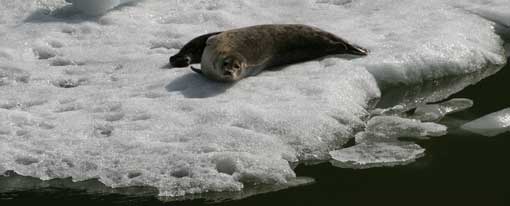-
-
The first Thanksgiving was held in the autumn of 1621 and included 50 Pilgrims and 90 Wampanoag Indians and lasted three days. Many historians believe that only five women were present at that first Thanksgiving, as many women settlers didn’t survive that difficult first year in the U.S.
-
Thanksgiving didn’t become a national holiday until over 200 years later! Sarah Josepha Hale, the woman who actually wrote the classic song “Mary Had a Little Lamb,” convinced President Lincoln in 1863 to make Thanksgiving a national holiday, after writing letters for 17 years campaigning for this to happen.
- No turkey on the menu at the first Thanksgiving: Historians say that no turkey was served at the first Thanksgiving! What was on the menu? Deer or venison, ducks, geese, oysters, lobster, eel and fish. They probably ate pumpkins, but no pumpkin pies. They also didn’t eat mashed potatoes or cranberry relish, but they probably ate cranberries. And no, Turduckens (a turkey stuffed with a duck stuffed with a chicken) were nowhere to be found during that first Thanksgiving.
- No forks at the first Thanksgiving! The first Thanksgiving was eaten with spoons and knives — but no forks! That’s right, forks weren’t even introduced to the Pilgrims until 10 years later and weren’t a popular utensil until the 18th century.
- Thanksgiving is the reason for TV dinners! In 1953, Swanson had so much extra turkey (260 tons) that a salesman told them they should package it onto aluminum trays with other sides like sweet potatoes — and the first TV dinner was born!
- Thanksgiving was almost a fast — not a feast! The early settlers gave thanks by praying and abstaining from food, which is what they planned on doing to celebrate their first harvest, that is, until the Wampanoag Indians joined them and (lucky for us!) turned their fast into a three-day feast!
- Presidential pardon of a turkey: Each year, the president of the U.S pardons a turkey and spares it from being eaten for Thanksgiving dinner. The first turkey pardon ceremony started with President Truman in 1947.
- Why is Thanksgiving the fourth Thursday in November? President Abe Lincoln said Thanksgiving would be the fourth Thursday in November, but in 1939 President Roosevelt moved it up a week hoping it would help the shopping season during the Depression era. It never caught on and it was changed back two years later.
- The Macy’s Thanksgiving Day Parade began in 1924 with 400 employees marching from Convent Ave to 145th street in New York City. No large balloons were at this parade, as it featured only live animals from Central Park Zoo.
- Turkey isn’t responsible for drowsiness or the dreaded “food coma.” So what isolated footballis? Scientists say that extra glass of wine, the high-calorie meal or relaxing after a busy work schedule is what makes you drowsy!
- How did the tradition of watching football on Thanksgiving start? The NFL started the Thanksgiving Classic games in 1920 and since then the Detroit Lions and the Dallas Cowboys have hosted games on Turkey Day. In 2006, a third game was added with different teams hosting.
- Wild turkeys can run 20 miles per hour when they are scared, but domesticated turkeys that are bred are heavier and can’t run quite that fast.
- Benjamin Franklin wanted the turkey to be the national bird, not the eagle.
- Americans eat 46 million turkeys each Thanksgiving.
- Neil Armstrong and Buzz Aldrin’s first meal in space after walking on the moon was foil packets with roasted turkey.
- The heaviest turkey on record, according to the Guinness Book of Records, weighs 86 pounds.
- Californians consume the most turkey in the U.S. on Thanksgiving Day!
- Female turkeys (called hens) do not gobble. Only male turkeys gobble.
- The average turkey for Thanksgiving weighs 15 pounds.
- Campbell’s soup created green bean casserole for an annual cookbook 50 years ago. It now sells $20 million worth of cream of mushroom soup.

